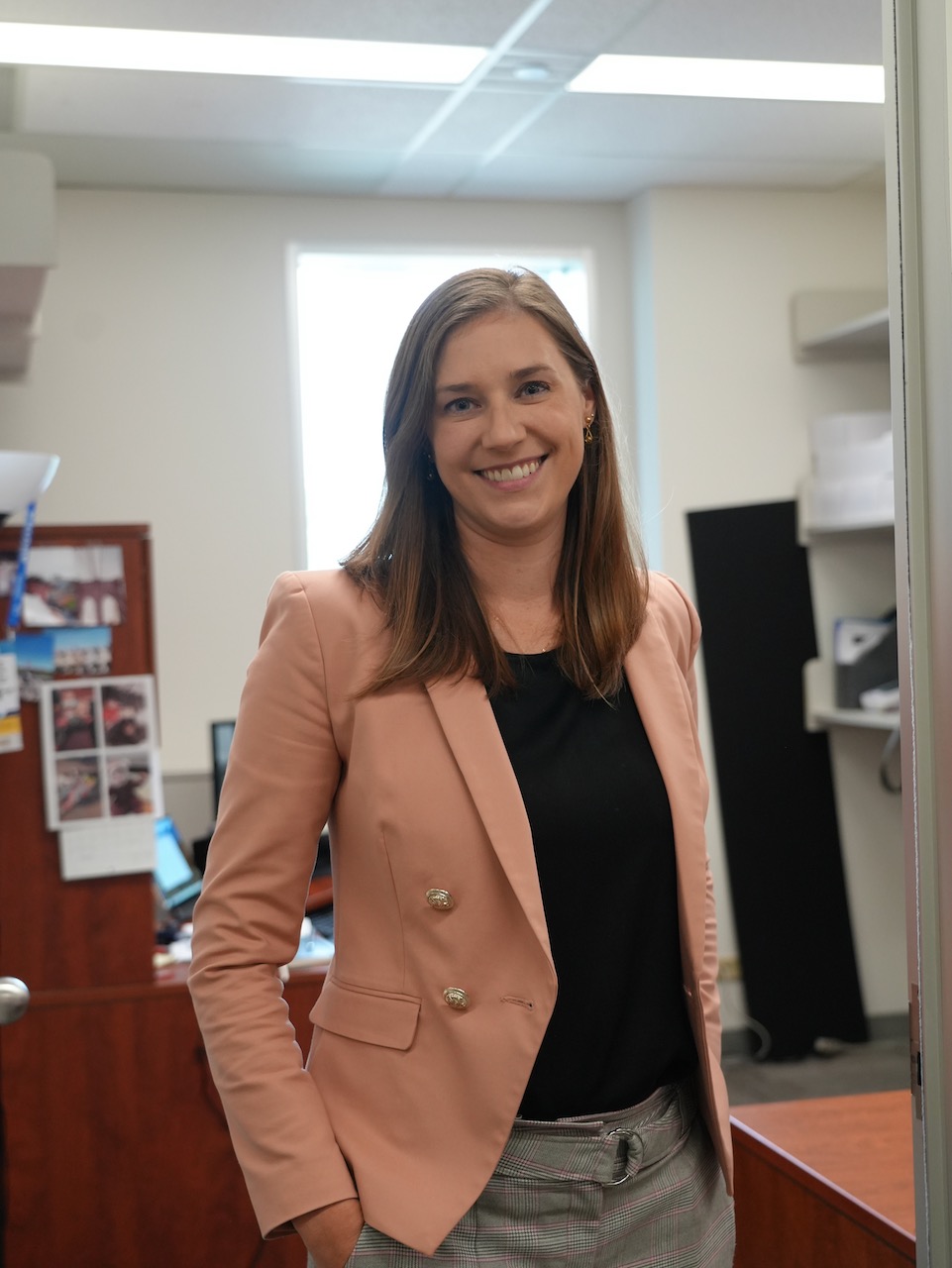New academic faculty member “wrote the book” on disaster pharmacy
Sasha Roeder Mah - 3 August 2023

Dr. Kaitlyn Watson
Kaitlyn Watson is joining the Faculty of Pharmacy and Pharmaceutical Sciences as an academic faculty member in September 2023. A registered pharmacist in her home country of Australia, she earned her PhD at Queensland University of Technology in Brisbane in 2019.
The chance to work as a postdoctoral fellow with Ross Tsuyuki, former chair in the Faculty of Medicine & Dentistry’s Department of Pharmacology and director of the EPICORE Centre in the Department of Medicine, brought Watson to the University of Alberta in 2020. She has been furthering her research training in clinical-trial management and implementation science in pharmacy practice and primary care ever since.
Watson is fascinated by the role of pharmacists in disaster and emergency preparedness and wrote the foundational book on the subject, entitled Disaster and Emergency Pharmacy: A Guide to Preparation and Management. In her new role, she looks forward to pursuing her many research interests further and contributing to teaching the next generation of pharmacists.
What are you most passionate about in the area of pharmacy and pharmaceutical sciences?
My research addresses the need for sustained change in health care. I achieve this through my clinical and community-based research, using quantitative and qualitative methods, clinical-trial management and implementation science. I enjoy using these skills to help other researchers achieve their objectives as well as further my own research. My areas of focus include primary care, public health, disaster management and pharmacy practice.
What have you been working on since you arrived at the U of A?
I completed two postdoctoral research fellowships, training in clinical-trial management and implementation science. The first was co-ordinating a stepped-wedge cluster randomized controlled trial (RCT) evaluating the impact of the Hypertension Canada Professional Certification Program completed by pharmacists on patients' systolic blood pressure. The second was a CIHR-funded Health System Impact Fellowship focusing on applying implementation-science principles to hypertension management for women in primary care. This involved taking an inquisitive approach to deeply understanding the barriers and facilitators before designing interventions to solve the problem — so you know that the solution you are implementing is accurately addressing the problem.
I am also the ongoing project coordinator for the PAUSE project, a collaboration between the University of Calgary and the U of A. This mixed-methods study focuses on co-designing a sick-day medication-guidance eHealth tool for patients with chronic conditions to self-manage during sick days. We are currently completing heuristics and usability testing and will then move into feasibility and evaluation RCT studies. Additionally, I was the principal investigator and supervisor for several COVID-related studies exploring pharmacists’ lived experiences and their professional role identity.
Some of my current/new projects include a qualitative exploration of patients’ and pharmacists’ experiences with pharmacist walk-in clinics in Alberta and a Q-methodology study exploring international pharmacists’ professional identity. This combines qualitative and quantitative techniques to study subjectivity, allowing researchers to identify and describe the shared viewpoints that exist on a topic, revealing areas of consensus and disagreement across these views. I am also working with Hypertension Canada to improve the implementation of their clinical guidelines and address barriers to care for women with high blood pressure.
How do you hope to advance your research in this new role?
I identified a gap where no one could see how pharmacists were useful in disaster management efforts and turned this area of interest into a research field. I completed my thesis on this topic, which was the first study of its kind to put pharmacy practice and disaster management together in research. This has led to my recognition as an international expert on pharmacists in disasters and the publication of my book on the fundamentals of disaster and emergency pharmacy.
I hope to build upon this and create a pharmacy public-health hub that provides resources, education and cutting-edge research that utilizes pharmacists' full scope of practice. I plan to demonstrate this connection between disaster management and the advancement of health care. Sustainable change is often the outcome of meeting health needs during an emergency and appropriately expanding boundaries and policies leading to a new era of health care. This was exemplified around the globe during the COVID-19 pandemic as pharmacists stepped up to meet the needs of their communities.
Can you tell us about your interest in disaster management?
I completed my PhD on international pharmacists’ roles in disasters and emergencies. After completing my degree, I noticed a gap in resources, education and training for the global pharmacy profession on disaster management and emergency preparedness. So I created Disaster Pharmacy Solutions, where we focus on education and training. We specialize in workshops where participants respond to a hypothetical scenario and complete a tabletop exercise to increase their preparedness and practise their response within a safe learning environment. We have provided these workshops at national pharmacy conferences in different countries, as well as virtually. These types of activities are a great mechanism to teach other important skills for pharmacists, including but not limited to leadership, autonomy, practising appropriately/legally without technology, teamwork, collaboration, reviewing evidence-based resources to provide recommendations in the absence of information, etc.
Along with your research, will you be teaching and/or taking on students?
I will be teaching in the Behavioural, Administrative, Social and Evidence-based Pharmacy stream as well as in the leadership elective. And I am looking at incorporating graduate students into my research. I am currently looking for graduate students with experience and/or interest in qualitative research methods for the pharmacist walk-in clinic evaluation study.